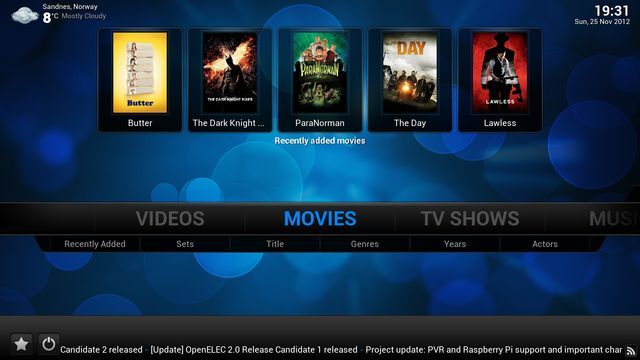
I've had a Raspberry Pi2 since earlier this year when it first came out. I had gotten it in a package which included a see-through plastic case, a miniSD card pre-loaded with Noobs on it, a wifi USB dongle, USB power supply, and HDMI cable. Since I already had a wireless keyboard and mouse I could use and the 27" ASUS MX279H monito I connect up to my laptop when I have more serious work to do had HDMI inputs so I was all ready to go. I actually couldn't wait and ended up firing it up at work - running through the Rasbian setup and surfing the web a little bit. The Pi was a bit slower than I had expected, but it was amazing how useable it was for the price!
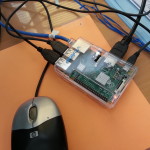
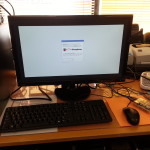
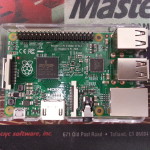
I had a couple ideas for how I was going to use the thing back in February. I thought one good use for the thing would be as a NAS device. Since I have so many devices I thought about setting it up connected to a USB drive to share files between them easier. The lack of any USB 3 ports on the Pi makes this idea less compelling. I think a real NAS may be in my future (perhaps a Synology). Another idea I had was as a controller for an on-the-cheap security system - wiring up a couple of network cameras to it, perhaps using something like motion on the pi. This is still a possibility. I was hoping I'd be more adventurous and hack together some programs in python to control the GPIO pins but I never came up with anything I wanted to do - I had some vauge ideas about integrating it into my solar panel system somehow, but the charge controller that came with the panel does everything I need it to do.
One use for the Pi that I hadn't really even thought about initially is as a media center controller. I've been running Kodi (the old XBMC) on the NUC for a while (which is hooked up to the TV in the living room), but firing up the NUC which is running a full blown OS just to run Kodi on top of it seems a waste of resources. I realized that if Kodi ran decently on the Pi that it would make a perfect media center. It turns on very quickly, and with the USB ports I could keep videos and music on an external drive and play that stuff easily enough. It turns out there's a project which makes this very simple to do. OpenELEC is a specially tailored OS designed for one purpose - to boot and run Kodi as fast as possible. Since most TVs with HDMI ports support the HDMI-CEC standard, OpenELEC can be controlled entirely through the TV remote.
Getting OpenELEC running was easy! Note: I'm on a Linux machine so head over to the wiki if you're on another platform. I was lucky enough to have a way to connect my Raspberry's Class 10 miniSD card easily to my Linux machine (I'm using an SD card adapter). I checked my devices with lsblk which showed the miniSD card partitions as: /dev/mmcblk0p1 and /dev/mmcblk0p2. I downloaded the gzipped image (I'm using OpenELEC 6.0.0), unzipped it, and used dd (as root) to write the image to the miniSD card: dd if=OpenELEC-Generic.x86_64-6.0.0.img of=/dev/mmcblk0 bs=4M (note: I am not writing the image to one of the partitions but to the device itself). This created two partitions when I ran it, one for the OpenELEC OS (quite small, perhaps 300 MB) and another with the remaining space on the miniSD card.
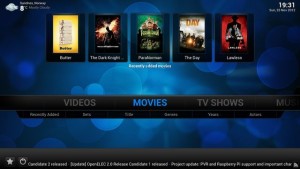
This image is not from my set up since I forgot to take a picture of it. I've been watching Starcraft games on Twitch, 12 monkeys episodes on SyFy, Ted, Pinkbike and various other streaming video services without a problem so far. I haven't set up a USB drive with video and audio yet, but I think I want to set up a little carrying case for it first - something that I can stow the hdmi cable and power cord into, possibly even a small UPS battery and a USB drive (or two). Maybe using a Pelican case or similar so I can transport the whole thing and set it up elsewhere as needed. It really requires a wired network connection though, at least with the wifi dongle that came in the kit paired with my ancient router streaming fairly choked. Wired seems to work very well though.


